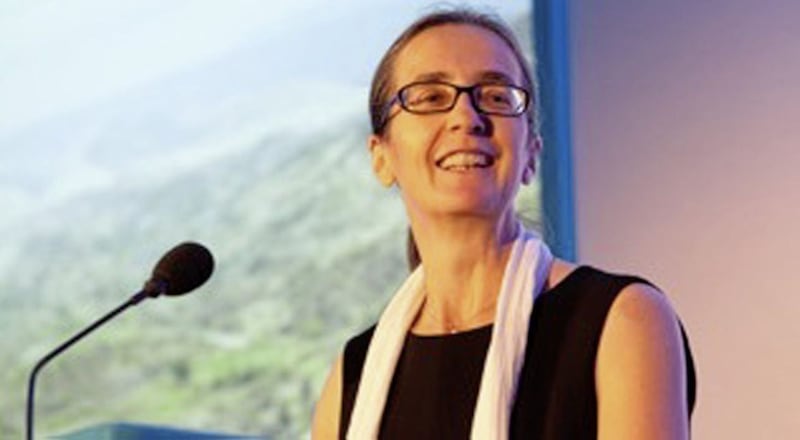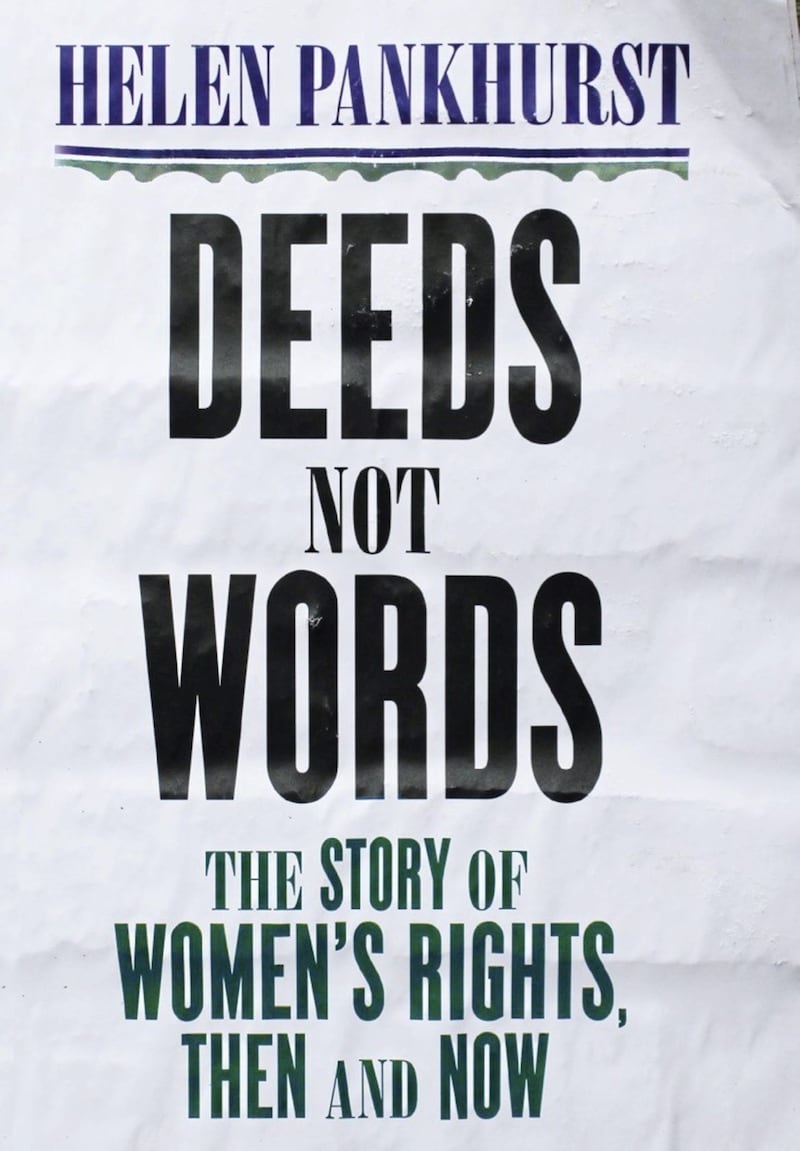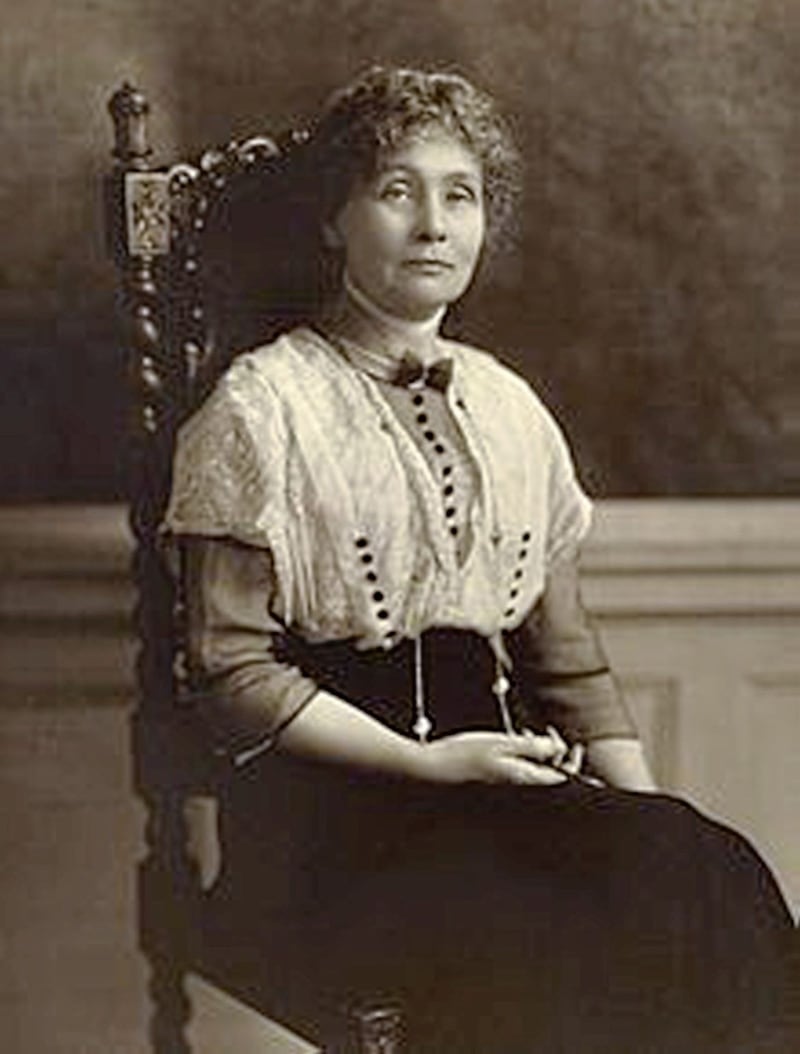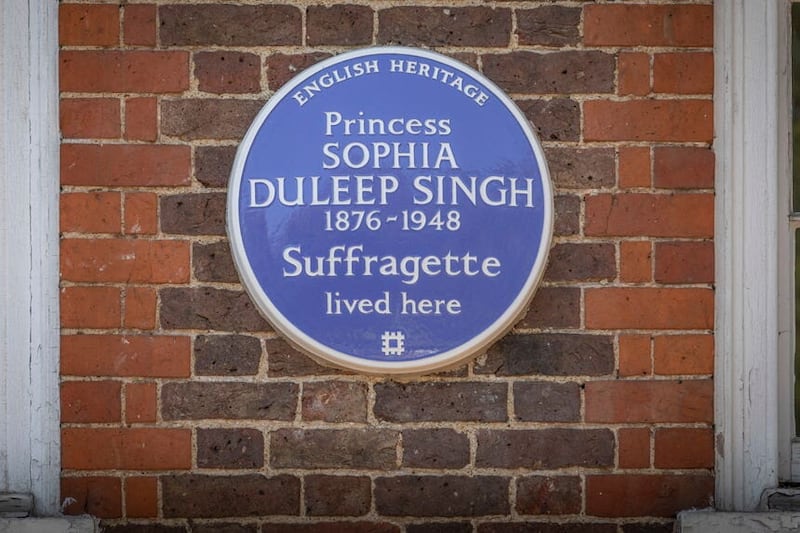THE name Pankhurst is synonymous with women's rights. And it's one that still resonates more than a century after it began appearing in newspaper headlines.
As the great-granddaughter of Emmeline Pankhurst and the granddaughter of Sylvia Pankhurst – pioneering figures in the Suffragette movement – it is perhaps inevitable that Dr Helen Pankhurst is also a women's rights activist and can be found at the heart of a continuing battle for equality.
But rather than feel a responsibility and pressure to follow in the footsteps of her ancestors, growing up as a child in Ethiopia and witnessing at first hand the strength and subordination of women there who were the ones who collected wood and water on their heads and backs, she formed her own feminist thoughts at an early age.
"I could have run away and done something different. I could have changed my surname on marriage, but I chose not to. It is such an important issue to continue fighting for and seemed so relevant to the world I was living in and it's still very much relevant today. We need to keep fighting."
Pankhurst, who splits her time between Addis Ababa and London, has worked with a number of global development organisations and is a senior advisor with CARE International who works around the world to save lives, fight poverty and help women and girls fulfil their potential.

With this year marking the centenary of the Representation of the People Act 1918 – also known as the Fourth Reform Act – which gave women over the age of 30 the right to vote, Pankhurst decided it was the perfect time to put pen to paper in response to the question of how much women's lives have changed over the past 100 years.
"In some ways things have changed dramatically and in other ways they are exactly the same," says Pankhurst, who will be speaking at the Open House Festival in Bangor this August about her book which takes its name from the slogan Deeds Not Words, adopted by Emmeline, co-founder of the Women's Social and Political Union, in 1903.
"There is a lot more variety in terms of the individual arcs that a woman might go through than she would have 100 years ago. There are many more opportunities to do things in different ways in terms of your personal life and work, and there are a lot more female role models.
"However, traditional sexist norms endure and often define our lives. Violence remains a real threat, women are still subordinated socially, politically and economically, and the massive resistance to change remains."
Just last week the BBC published the earnings of its top presenters, with the top 10 once again made up of men. In Deeds Not Words, Pankhurst reflects that at the present rate, Britain will have to wait until 2069 for the gender pay gap to disappear.
She admits she is frustrated, yet motivated by the pace of change. "It's a sad reflection on society that it is still culturally shocking for women to say enough is enough with campaigns such as #Me Too," she says referring to international movement against sexual harassment and assault.

Earlier this year she closely followed the high profile rape case in Northern Ireland involving rugby players Stuart Olding and Paddy Jackson and while the men were found not guilty of any crime, she found hope in the debate it sparked.
"For me the interesting part of that case was how social attitudes have changed so much that people took to social media to make it clear that irrespective of what did or didn't happen that night, the behaviour and language of those young males is no longer something that we as a society can tolerate."
Her message to everyone, especially men, is to "behave in ways that support each other" and "by changing your language and behaviour you can help change old stereotypes".
Pankhurst is proud that her own children are also carrying on the work of her ancestors. Her daughter Laura (23) joined her and a 50-strong group of women who performed a Suffragette re-enactment during the London 2012 Olympics, and also had a cameo role in the 2015 film Suffragette. Her son is just finishing university and "is very conscious of the importance of the young men in progressing ideas of feminism," says his proud mother.
So what qualities do the feminists of 2018 require?
"Being brave, persistent, having fun and purpose, but above all having solidarity with others," enthuses Pankhurst, who strongly believes we all have a role to play in helping to speed up gender parity.
There may be many individual battles – equality in the workplace, childcare, violence and abuse against women to name but a few – but Pankhurst sees them all as part of the one battle.
"Now it is about changing social norms. All these things are cumulative: we can't resolve it just one issue at time. Whether it's girls not being not allowed to be educated in Pakistan, women not being allowed to drive in Saudi Arabia or women not being able to make their own decisions about abortion in Northern Ireland, our voices need to support each other. There is power in global feminism because we need to provide a global solution.

Pankhurst is hopeful that both the abortion laws will change and same sex-marriage will be legalised in the north. "My understanding is that opinion has shifted in Northern Ireland and it's just that political institutions are standing in the way of change. Hopefully it's just a case of using the right mechanism to make that happen sooner than later."
Passionate about continuing the work of her ancestors, Pankhurst is planning to lead a "decade of change" up to 2028, the centenary of Equal Franchise when women were given the vote on the same grounds as men.
"My hope for 2028 is that every single person will have contributed to change and fundamentally the social norms will have shifted significantly, so that people will be laughing at some of the ideas that are still around today.
"I support the idea of an 11-year-old girl who questioned why superhero women who save the world need to do so in skimpy clothes. I worry about the sexualisation of young girls and the amount of time they spend on social media and worrying about what they look like. My hope is that what they say and what they do becomes more important to them than what they look like."
And her views on lowering the voting age to 16?
"This absolutely needs to happen. It's their future that is being decided on through the decisions and laws we make. I also feel citizenship and democracy need to be built into our educational curricula at a younger age."
:: Helen Pankhurst will in conversation with Yvette Shaprio at Studio 1A Theatre, Bangor, on August 15 as part of The Open House Festival. For full programme and tickets visit Openhousebangor.com.
Deeds Not Words: The Story of Women's Rights, Then and Now by Helen Pankhurst is published by Sceptre








